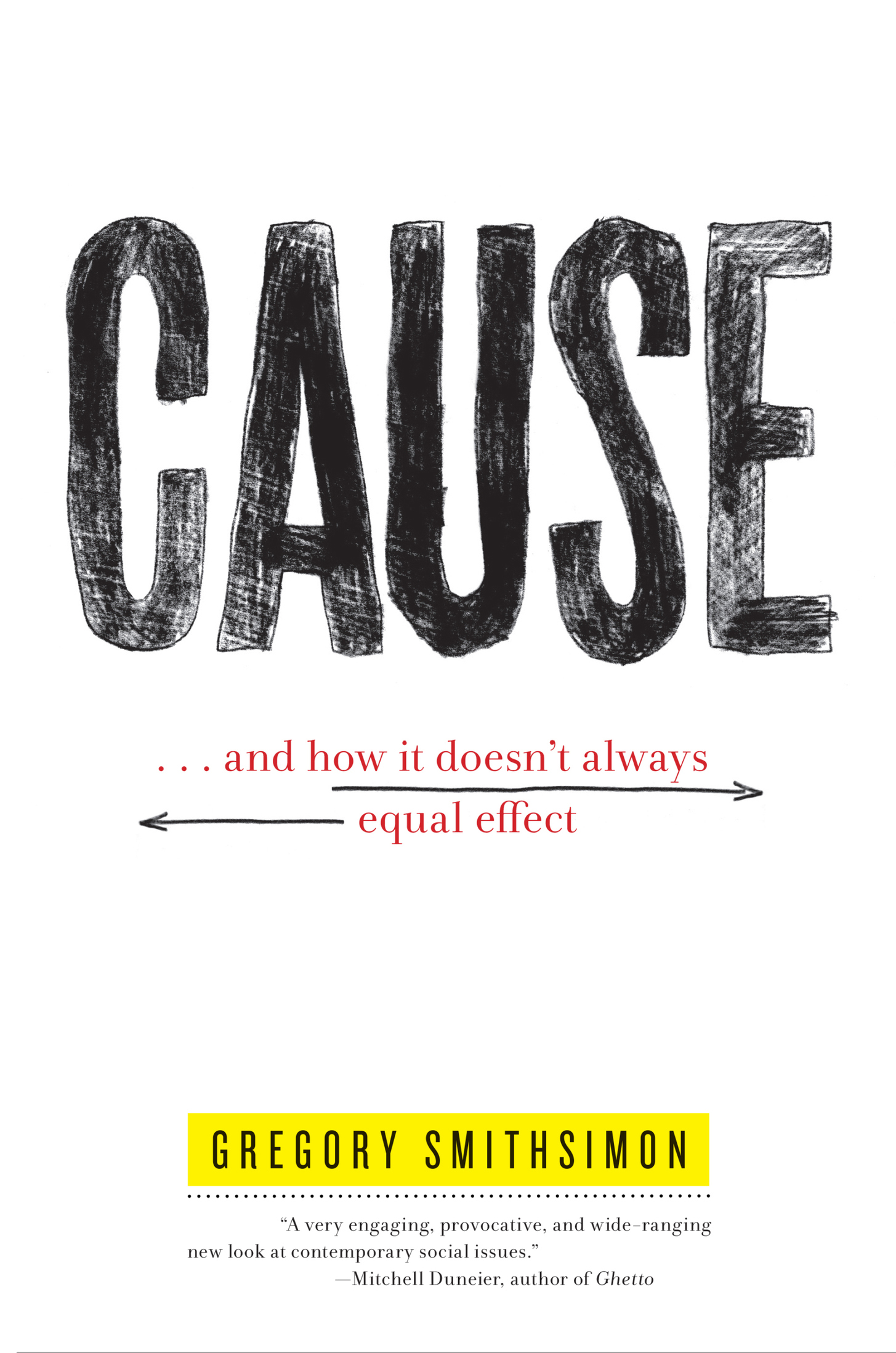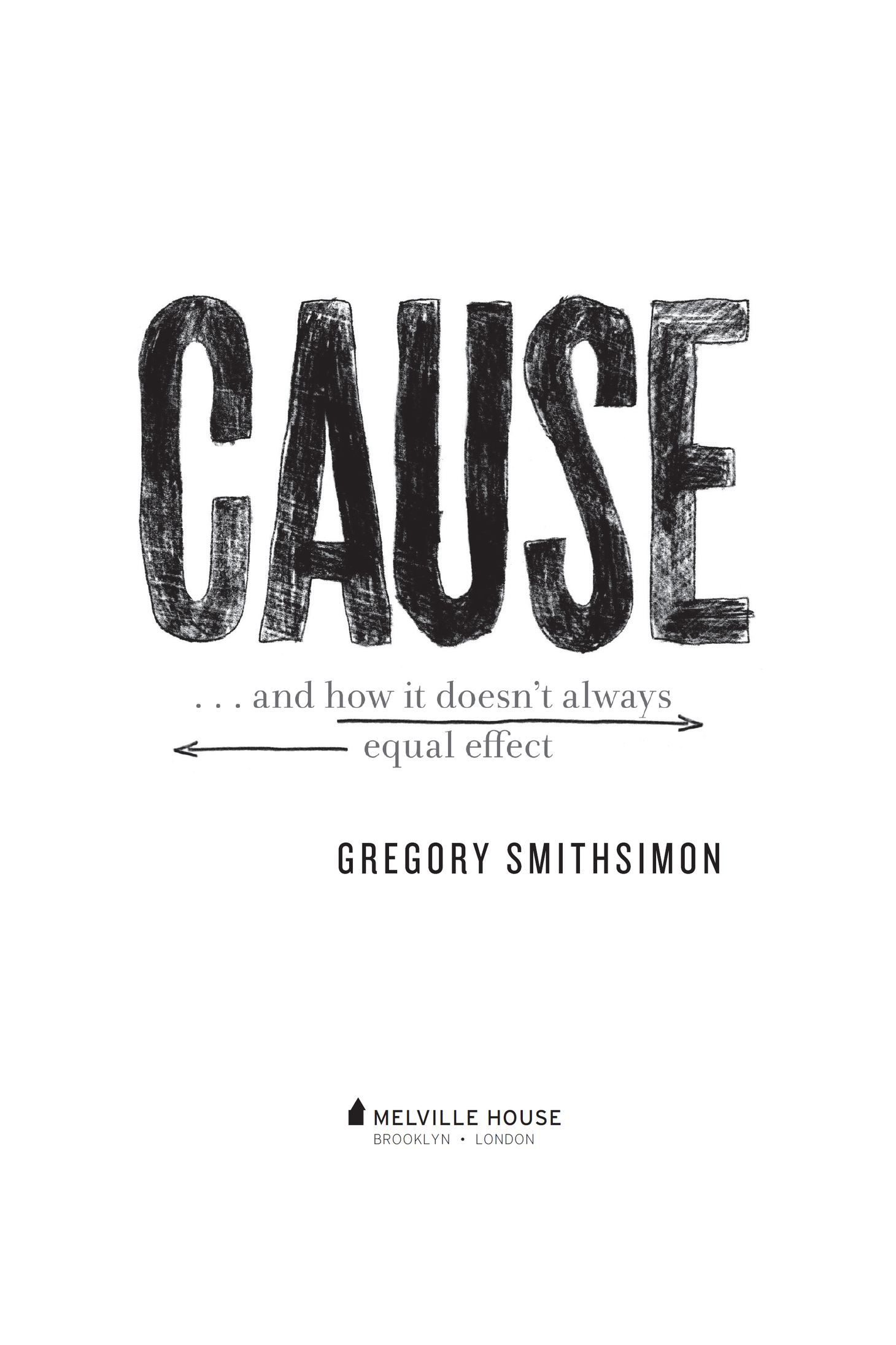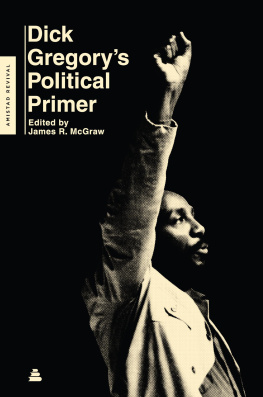Gregory Smithsimon - Cause : ... and how it doesnt always equal effect
Here you can read online Gregory Smithsimon - Cause : ... and how it doesnt always equal effect full text of the book (entire story) in english for free. Download pdf and epub, get meaning, cover and reviews about this ebook. year: 2018, genre: Politics. Description of the work, (preface) as well as reviews are available. Best literature library LitArk.com created for fans of good reading and offers a wide selection of genres:
Romance novel
Science fiction
Adventure
Detective
Science
History
Home and family
Prose
Art
Politics
Computer
Non-fiction
Religion
Business
Children
Humor
Choose a favorite category and find really read worthwhile books. Enjoy immersion in the world of imagination, feel the emotions of the characters or learn something new for yourself, make an fascinating discovery.

- Book:Cause : ... and how it doesnt always equal effect
- Author:
- Genre:
- Year:2018
- Rating:3 / 5
- Favourites:Add to favourites
- Your mark:
- 60
- 1
- 2
- 3
- 4
- 5
Cause : ... and how it doesnt always equal effect: summary, description and annotation
We offer to read an annotation, description, summary or preface (depends on what the author of the book "Cause : ... and how it doesnt always equal effect" wrote himself). If you haven't found the necessary information about the book — write in the comments, we will try to find it.
Cause : ... and how it doesnt always equal effect — read online for free the complete book (whole text) full work
Below is the text of the book, divided by pages. System saving the place of the last page read, allows you to conveniently read the book "Cause : ... and how it doesnt always equal effect" online for free, without having to search again every time where you left off. Put a bookmark, and you can go to the page where you finished reading at any time.
Font size:
Interval:
Bookmark:


CAUSE
Copyright 2018 by Gregory Smithsimon
First Melville House Printing: January 2018
Melville House Publishing
46 John Street
Brooklyn, NY 11201
and
8 Blackstock Mews
Islington
London N4 2BT
Book design by Richard Oriolo
mhpbooks.com
facebook.com/mhpbooks
@melvillehouse
ISBN 9781612196763
Ebook ISBN 9781612196770
A catalog record for this book is available from the Library of Congress
v5.2
a
causality
The sociologist Emile Durkheim wrote that we explain social facts with other social facts. Why did the most recent recession occur? Because of housing speculation. Why did housing prices inflate in a bubble? Because mortgage funds were lent in risky ways. Why did that happen? Because financial regulations had been loosened, mortgages were chopped up, resold, overrated by rating agencies and insured in unsustainable insurance schemes, and waves of capital flowed into the mortgage market seeking what seemed to be guaranteed high returns. And so on.
But this kind of reasoning often misleads both sociologists and the general public. It examines only one form of causalityproximate human actionsas causes of significant events in human history. The problem is not that social facts dont cause other social facts. The problem is that, in our hubris and because of the limitations of our cognition, we too often make decisions as if only social facts can explain other social facts.
It is tempting to say that sociologists simply make the same disciplinary error that most other professions make: to a carpenter everything looks like a nail, so to a psychologist every conflict seems to have a psychological explanation, to a geneticist every human fault has a genetic basis, to an economist every action has an economically rational explanation.
But it isnt just a shortcoming of social scientists, or even of professionals generally, to explain social facts with reference to the field they know best. Often, we mistake complex conflicts for purely social ones. Take the case of Andrew Speaker. In May 2007, he was diagnosed with a difficult-to-treat form of tuberculosis. Health department officials in Georgia warned him not to travel, for fear it could infect others. But Speaker and his fatherboth lawyersattended health department meetings. They pressed the department on whether they were banning him from traveling. And because officials did not know if they had authority to issue such a prohibition, they said no. Speaker took that admission as a victory, moved up the date of his departure, and flew to Europe. He spent time in Greece, Italy, the Czech Republic, and Canada. Of course, viruses operate unaware of such legalist arguments, and Speaker was eventually quarantined and had a section of his lung removed in the treatment of his disease. Sure, he won his social battle with the Georgia state health officials. But the real battle was with tuberculosis. Although there do not appear to have been any further cases in any of those four countries, Speaker should have made his choice based not on the first battle but on the second.
We often think like Speakerat our peril.
Think of global warming and its widespread, devastating consequences. Climate change deniers often ignore the science behind the phenomenon. To them its a political battle (between those who seek environmental regulation, and those who oppose it) not a scientific one. To the nonregulators, climate change has little to do with the nonhuman, nonsocial, empirical question of whether the Earth is actually getting warmer. Unfortunately, it is. But rather than accept this thoroughly nonsocial reality of the physical world (and then fight over the political question of what response would serve them best), climate deniers couch the debate in purely social terms: the presumed political biases of the climate scientists, the economic disadvantages of imposing restrictions on emissions, the way climate change policies fit into preexisting differences between political parties.
When prescientific people experienced a natural disastera drought, a flood, a hurricane, they asked why it had happened. To answer, they engaged in the same sort of exercise we do today, seeking to explain social facts with other social facts: people are starving during the drought, so it must be the result of peoples behavior before the drought. Communities were destroyed during a hurricane, so the community must have done something sinful to attract that hurricane. The notion that human behavior has the power to rend the skies and shake the earth is meaningful enough to us that even some modern religious figures blame wayward human conduct for disasters, including the flooding of New Orleans, Hurricanes Sandy and Isaac in New York, and earthquakes from Japan to Haiti to Virginia. This kind of absurd social explanation reflects how particularly human, and specifically flawed, is the very question of Why? When we ask why we are not asking for the physical mechanism, which we can often determine, but a personal or moral justification, which is rarely available.
This use of why sends us down a dead end. When we explain why climate change is occurring, the ensuing argument is about the moral judgment implicit in the explanation that modern capitalism has ruined the planet. The fight is less about parts per million in the atmosphere than about an intangible sense of why.
Why is a question that we have the grammar to construct, but it is a question without an answer. This morning my daughter asked me where she could find her birth certificate. I told her it was in a bin in the basement. Why? she asked. How could I answer? Mechanistically, the certificate was sitting in a bin, which, when we moved, got put in the basement, and that particular bin, owing to its size and the fact that it contained nothing we needed very often, had not been moved upstairs. That, however, is a meaningless answer. What she meant, and what I understood was, The basement is dirty so I was hoping my birth certificate was stored in a bedroom closet or a drawer; Im frustrated and unhappy that I have to go down to that dirty, dusty basement to get it. Why are you making me go down there? Its your fault. I could offer my sympathy that she had to do an unpleasant task; I could apologize for not bringing upstairs something that I might have foreseen she might need. But it was meaningless to explain why an inanimate object was sitting where it had been left. Why, like its existential and theological cousins, Why are we here? and Why me?, are not questions to be investigated but shouts to the heavens. As well see, we want only certain kinds of answers, narrow answers, and whats missing from those answers shortchanges us in comprehension and overpays in frustration. Our mistaken answers to why repeatedly hobble our understandings of social and natural causation.
Throughout Cause I argue that we, as humans, misunderstand causality in several key ways, and that if we can recognize our limitations, we can also see that world more clearly.
One crucial limitation is that we often create causal stories under conditions of fear. Thats because were mortal and life is short; racing through life, trying to survive, to raise children, to care for those we love, to make the world a better place, to enjoy as many of its fruits as we have time to. It is as if life were lived rushing through a train station we had never been to before, trying to find our platform while also looking for a good meal, a nice drink, a close friend, and keeping sight of our children, our spouse, our friends and family also running through the crowd. Causal explanations are like the mental map we make of the train station as we race through it. The map would be provisional and incomplete, but it would help us get where we need to go. If we made it on time, we would feel that our mapmaking skills worked well enough.
Font size:
Interval:
Bookmark:
Similar books «Cause : ... and how it doesnt always equal effect»
Look at similar books to Cause : ... and how it doesnt always equal effect. We have selected literature similar in name and meaning in the hope of providing readers with more options to find new, interesting, not yet read works.
Discussion, reviews of the book Cause : ... and how it doesnt always equal effect and just readers' own opinions. Leave your comments, write what you think about the work, its meaning or the main characters. Specify what exactly you liked and what you didn't like, and why you think so.









